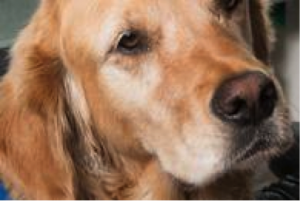2017
- Morgane BUNEL (under the direction of Catherine ANDRÉ and Pascale QUIGNON)
“Research of new genes responsible for inherited eye diseases in dogs and humans: progressive atrophy of the retina to retinitis pigmentosa”
2016
- Mélanie RAULT (under the direction of Catherine ANDRÉ and Benoît HEDAN)
“Histiocytic sarcoma in dogs: genetic model of the tumorigenesis of this rare sarcoma in humans
- Ronan ULVÉ (under the direction of Catherine ANDRÉ and Benoît HEDAN)
” Molecular and cellular characterization of canine lymphomas: preclinical models predictive of human homologous lymphomas “ - Article : Where does the dog come from?

Dogs could have been domesticated independently in eastern and western Eurasia from distinct populations of wolves. This is revealed by a study conducted with the contribution of Christophe HITTE of the team “Genetics of the dog”. Publication in Science
https://www.ncbi.nlm.nih.gov/pubmed/27257259
No, the dog’s ancestor is not 100% Asian, as most geneticists thought. The best friend of the man would come from the cross between a cousin domesticated in East Asia and another domesticated in Western Europe. This is shown for the first time in an international study. Explanations […].
Article à découvrir sur Le Journal du CNRS
- CAFE DES SCIENCES: Diseases, dogs are our friends
MARCH 31, 2016 | 18H30 Cafes of the Espace des Sciences Café des Champs Libres
Catherine André: geneticist, head of the Dog Genetics team, Institute of Genetics and Development of Rennes (University of Rennes 1, CNRS)
Morgane Bunel: PhD student at the Institute of Genetics and Development of Rennes (University of Rennes 1, CNRS)
Gilles Chaudieu : veterinary
Dogs have the same genetic diseases as us. Normal, we have close genomes, and we live in the same environment. By studying pathologies specific to certain breeds of dogs (ophthalmological, neurological or dermatological diseases in particular), the researchers of the IGDR (Institute of Genetics and Development of Rennes) identify the genes responsible. Their discoveries reinforce our fundamental knowledge. They serve the health of man. As well as that of the dog!
Proposed by Sciences Ouest, the monthly scientific news in Brittany, published by the Espace des Sciences
REPEAT THE CONFERENCE :



